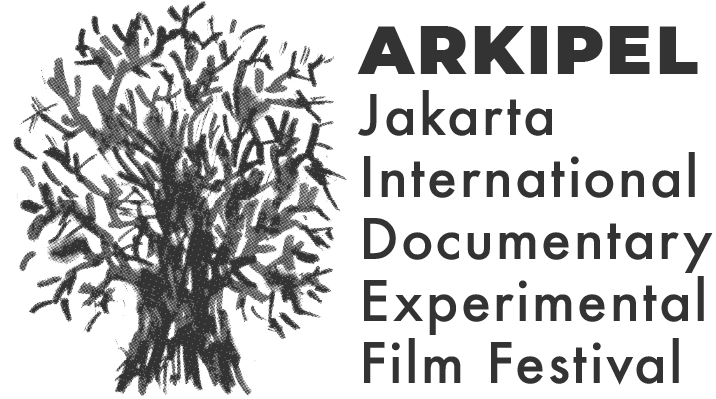Amplifying
Amplifikasi
Host: Ugeng T. Moetidjo
Sunday, August 12, 2018 | 01:00 pm | Kineforum
Monday, August 13, 2018 | 07:00 pm | Kineforum
Adakah seseorang benar-benar sosok personal sepenuhnya—dulu maupun kini? Kedua filem ini menawarkan refleksi tentang yang impersonal, bahwa: tak seorang atas namanya sendiri dapat mengartikan pengalaman primordialnya sebagai hanya berlaku baginya seorang, melainkan suatu kenyataan yang niscaya menunjukkan tanda-tanda komunal. Tubuh tidak memproduksi gagasan atau angan-angannya sendiri dan hanya demi dirinya sendiri. Gestur yang terlihat personal, sebenarnya, merupakan pengungkapan akan yang komunal, ruang identitas dari tempatnya merasa terbela dan terkonsekuensi melakukan kewajiban timbal-baliknya.
Identitas-identitas, pada dasarnya, adalah tubuh-tubuh yang dikoloni. Mereka bergerak mengobjektivasi tubuh ke dalam kerangka tribalisme primordial. Kesadaraan bahwa identitas dikonstruksi sebagai eksistensi muncul dari kenyataan tubuh yang dikoloni ideologi-ideologi maupun media-media. Dekolonisasi tubuh adalah upaya untuk memupus tribalisasi di ruang-ruang primordialnya. Karenanya, wacana dan praktik-praktik pembebasan atas tubuh yang dikoloni muncul sebagai narasi gestural lewat organ-organ pengindera, yang di antaranya diproduksi sebagai suara.
Suara-suara itu kemudian menjelmakan bahasa sensual bagi narasi balik yang mencoba mendefinisikan kembali berbagai personifikasi identitas. Contoh-contoh kelisanan sebagai model berbagai narasi telah memosisikan suara-suara ke dalam wacana-wacana antagonistik pada dua entitas budaya dan sosial dari dua fenomena komunal. Suara-suara mereka telah menjadi amplifikasi bagi konteks identitas komunal setiap subjek.
Le Cadeau memomenkan situasi pengingatan kembali, sementara Meta Marathon secara ironis berupaya menjangkau lagi arketipe keyakinan dalam kegamangan eskatologis. Pada keduanya, pendelegasian tubuh ke serangkaian narasi biografis berfungsi seusai tubuh menarik yang komunal untuk mengesahkan identitasnya. Pada yang pertama, media adalah tubuh itu sendiri yang menolak fungsi di luar anatomi biologisnya saat hendak memaknai geografi asal; sementara pada yang kedua, selalu muncul keinginan tubuh untuk mereproduksi identitasnya ke dalam mesin media. Artinya, tubuh baru teridentifikasi sebagai kenyataan eksistensial selama menarik diri ke dalam arena komunal sambil terus-menerus mereproduksi tubuh komunal. Reproduksi tubuh personal menjadi tubuh komunal berlangsung di berbagai konteks ranah identitas di mana segenap aspek dari tubuh kita dinisbahkan untuk senantiasa [menjadi] impersonal.
Is there anyone who is really a personal being altogether – both in the past and now? These two films propose a reflection on the impersonal, that: not a single being on their own behalf can define their primordial experience as valid only for them, but a fact that obviously shows communal signs. The body does not produce its ideas or fantasies only for its own sake. A personal-looking gesture is, in fact, a disclosure of the communal, a space of identity in which it finds a sense of being defended and consequently performing its mutual obligation.
Identities, essentially, are the colonized bodies. They move to objectify the body into the framework of primordial tribalism. The consciousness that identity is constructed as existence emerges from the fact that ideologies and the media colonize the body. Decolonization of the body is an attempt to dismiss tribalization in its primordial spaces. Therefore, discourses and practices of liberation on the colonized bodies appear as gestural narratives through the sensory organs, among which are produced as sound.
Those voices incarnate sensual language for the reverse narratives trying to redefine the multiple personifications of identity. Verbal models as the model of various narrative have put those voices into antagonistic discourses on two social and cultural entity from two communal phenomena. Their voices have become the amplification for the context of collective identity of each subject.
Le Cadeau freezes the moment of retrospection, while Meta Marathon ironically attempting to reach out again the archetypes of belief in eschatological uncertainty. In both of them, a delegation of the body to a series of biographical narratives serves its function after the body pulls the communal ones to validate its identity. In the first one, the media is the body rejecting the functions outside of its biological anatomy when it comes to interpreting the original geography; while in the second one, there is always desire of the body to reproduce its identity into the media machine. It means that the body is identified as an existential reality when withdrawing into the communal arena while continuously reproducing the communal body. The reproduction of the personal body into a communal body takes place in various contexts in the domain of identity in which all aspects of our body are attributed to always become impersonal.
Film List

Meta Marathon
Filmmaker Saeed Keshavarz (Iran)
International Title Meta Marathon
Country of Production Austria
Language German
Subtitle English
74 min, color, stereo, Digital, HD, 16:9, 2015
Qodratulloh Bayyat, pemuda pekerja desa yang sederhana, sesumbar mampu memecahkan rekor dunia dan rekor olimpiade cabang olahraga maraton. Komunitas warga sedesanya menyanjungnya bak pahlawan mereka. Untuk membuktikan kata-katanya dan membalas dukungan masyarakat yang memercayai niat dan harapannya, ia mengikuti ajang lomba maraton yang diadakan di kota dan mempersiapkan sebuah tim yang akan memfilemkan kemenangannya. Narasi yang berpusat pada potret keluguan protagonis ala reality show ini, melibatkan sejumlah aspek tentang bagaimana kemiskinan, dan di atas segalanya, martabat dan kejujuran, turut berperan dalam mengguncangkan kepercayaan komunal akan penyelamatan dari ketidakadilan sosial.
Qodratulloh Bayyat, a young working lad living in his modest village, boasting that he can break the world and Olympic record in the marathon. People in his village flatter him as if he is their hero. To prove his saying and respond to the people who trust his motives and hopes, he then joins a marathon competition held in the town and prepares a team to film his victory. The narrative centers around the portrait of the protagonist’s innocence which looks like a reality show, engaging the aspects on how poverty—and above everything—dignity and honesty play their roles in shaking communal believe on the rescue from social injustice.

Saeed Keshavarz (1985) memulai kegiatan seni pada tahun 2002 dengan bekerja di bidang teater sebagai sutradara dan aktor. Dia telah membuat beberapa filem dokumenter televisi dan filem cerita pendek. Dia juga seorang Seniman Video. Meta Marathon adalah filem panjang pertamanya.
Saeed Keshavarz (1985) started art’s activities in 2002 by working in the field of theatre as director and actor. He has been made several television documentaries and short story film. He also a Video Artist. Meta Marathon is his first feature film.

Le Cadeau
Filmmaker Myriam Van Imschoot (Belgium)
International Title Le Cadeau
Country of Production Belgium
Language French, Arabic
Subtitle English
49 min, color, stereo, HD, HD, 4:3, 2018
Isi sinopsis
Fill the synopsis

Myriam Van Imschoot (1969) lahir di Ghent dan ia adalah seniman performans yang aktif di teater dan ruang publik. Karya-karyanya telah banyak dihadirkan di berbagai festival. Namun, Le Cadeau adalah filem panjang pertamanya dalam seri yang disebut Yodel Portraits. Ia kini tinggal dan bekerja di Brussels.
Myriam Van Imschoot (1969) was born in Ghent and is a performance artist active in theater and public space. Her works have been presented in many international festivals. However Le Cadeau is her first long film in a series called Yodel Portraits. She lives and works in Brussels.
About the Host

Ugeng T. Moetidjo adalah seniman, penulis, dan peneliti senior di Forum Lenteng. Pernah menempuh pendidikan di bidang Seni Murni di Institut Kesenian Jakarta, dan belajar sejarah dan teori sinematografi di institut yang sama. Aktivis untuk kerja-kerja senirupa, teater dan sinema serta sosial.
Ugeng T.Moetidjo adalah ketua tim selektor ARKIPEL homoludens.
Ugeng T. Moetidjo is an artist, writer and senior researcher at Forum Lenteng. He studied Arts at the Institut Kesenian Jakarta, and also studied film history and theories of cinematography in the same institution. He is an activist for the works of art, theatre and cinema as well as social.
Ugeng T. Moetidjo is Selector Team Head of the ARKIPEL homoludens.

